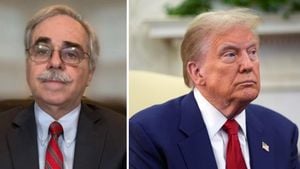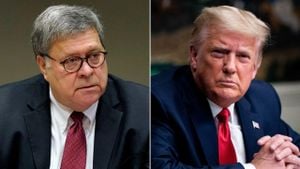Tehran has recently made headlines with its vehement condemnation of what it calls illegal foreign interference in Venezuela's internal affairs. This statement, articulated by Esmaeil Baghaei, Iran's Foreign Ministry spokesman, reflects Tehran's longstanding position on sovereignty and international law, particularly when it involves nations often seen as having contentious relations with Western powers.
On November 23, 2024, Baghaei took to social media to express Iran's firm stance against the United States. He stated, "Iran considers any foreign intervention in Venezuela's internal affairs as contrary to international law and UN Charter principles and a blow to peace and stability in the country." This declaration came amid rising tensions between Washington and Caracas and follows recent statements by U.S. Secretary of State Antony Blinken, who recognized Edmundo González Urrutia—a Venezuelan opposition candidate—as the country’s “president-elect.”
The Iranian spokesperson highlighted the historical parallels to previous U.S. interventions, referencing the turmoil from 2019 when the U.S. supported Juan Guaidó's self-proclamations as Venezuela's president. Baghaei emphasized, "condemning the illegal interference on the part of the United States, which brings back the memory of 2019 destructive and divisive interference, we support the country’s elected and legitimate President, Nicolás Maduro." This remarks reinforce Iran's solidarity with Maduro and its criticism of external forces attempting to sway Venezuela's political sphere.
It's no secret why Iran is particularly vocal on this topic. The Islamic Republic itself has faced numerous instances of foreign intervention and sanctions, not just from the U.S. but also from its coalition of Western allies. Having experienced what they label as hostile meddling, Iran finds common ground with Venezuela, whom it believes is battling similar pressures. Both nations have been targeted by sanctions, which, according to Tehran, disrupt their sovereign right to self-governance.
This stance is pivotal as it not only showcases Iran's support for Maduro but also seeks to present Tehran as a champion of nations resisting what it perceives as Western imperialism and hegemony. Baghaei's comments are also part of Iran’s broader diplomatic efforts to reinforce alliances within Latin America. Just last month, Iranian Defense Minister Brigadier General Aziz Nasirzadeh met with Venezuelan officials to strengthen bilateral ties, demonstrating Iran’s interest not just ideologically but also strategically.
Beyond condemning U.S. actions, Iran is advocating for the Venezuelan government's independence to solve its problems without foreign influence. Baghaei stated Iran commends the Venezuelan government's attempts to resolve issues stemming from illegal U.S. sanctions and unjust pressures. This framing positions Iran as not merely supportive but as actively bolstering Venezuela's ability to manage its affairs, which resonates well with anti-imperialist rhetoric.
While tensions between Venezuela and the U.S. continue to escalate, Iran's backing of Maduro indicates not just solidarity but also strategic positioning in the geopolitical chess game. The Iranian government’s viewpoint makes it clear: any undermining of Venezuela's government by external forces is unacceptable and should be condemned.
Venezuelan Foreign Minister Ivan Gil echoed similar sentiments, reinforcing his country’s stance against “Israeli state terrorism” and its support for anti-imperialist movements, drawing interesting parallels with Iran's foreign policies. This collaboration extends not just to Venezuela but also to broader regional alliances opposing Western influence, encompassing nations like Palestine and Lebanon as well.
With both nations actively communicating camaraderie against foreign interventions, their alliance could reshape how power dynamics play out on the global stage. The event signifies more than mere political statements—it illuminates Iran's ambition to fortify its influence within Latin America, creating a counterbalance to U.S. policy.
Iran's condemnation of foreign intervention serves as both rhetoric and reality—a declaration rooted deeply in its own experiences and strategic interests. By voicing solidarity with Maduro, Iran underlines its support for nations under pressure from Western powers. This moment is emblematic of how to navigate the complexity of global politics today, where alliances are formed not just on mutual respect but shared resistance to foreign dominion.



